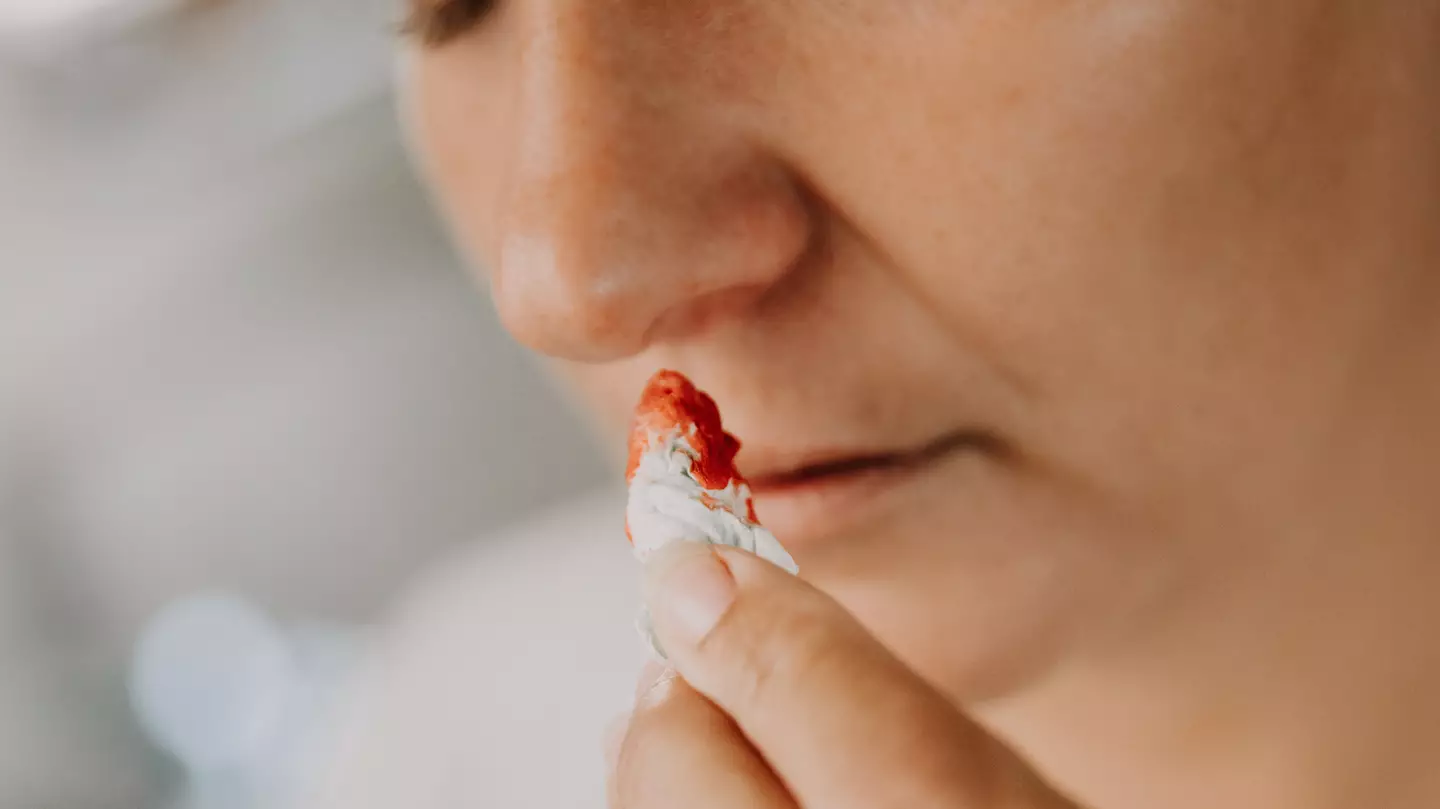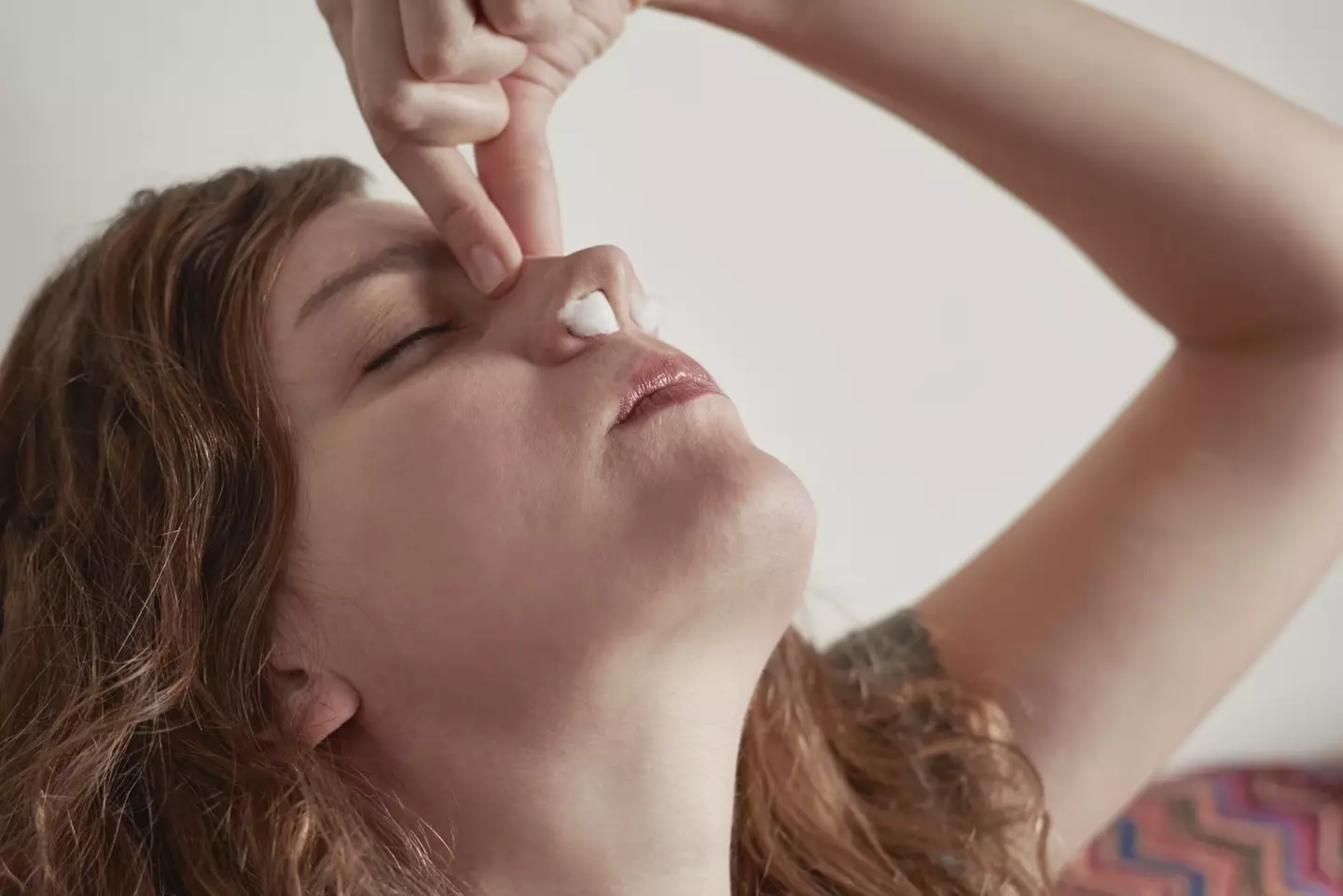A lot of people instinctively hurl their head back when a nosebleed strikes, but this surgeon says thats something you should 'never' do.
Dr Michael Gartner decided to give his more than one million YouTube subscribers a refresher on the best practice to follow if your hooter starts gushing.
The US-based plastic surgeon and social media star took it right back to basics, while also explaining why you should ignore the urge to tilt your head back at all costs.
He filmed himself reacting to a simulation created by Zack D Films, which depicted what goes down if you do give in to the impulse and fling yourself backwards.
The clip explained that if you do this, the blood pouring from your nose has nowhere to escape - apart from 'down your throat and into your stomach'.
This can lead to vomiting or perhaps even choking if the blood enters your airway, Zack explained.
Dr Gartner wholeheartedly agreed and further pointed out: "Blood in the stomach is very irritating and causes a lot of nausea. This sometimes actually with rhinoplasty surgery.
Dr Gartner urged people not to fling their heads back when suffering from a nosebleed (Getty Stock Image) "You never want to lean back while you have a bloody nose."
So, what should you do when red stuff is spilling uncontrollably from your schnozzle?
Zack went on to suggest sitting up straight, leaning forward slightly and 'pinching the soft part of your nose' to help stop the bleeding - all of which got the surgeon's thumbs up.
Detailing his nosebleed action plan, Dr Gartner said: "In addition to leaning forward, you also want to put pressure on the area.
"More pressure, like as if you're blowing your nose and then your fingers hold it. You basically breathe through your mouth and you hold that pressure leaning forward.
"And if you can do that for five to ten minutes, you'll usually always stop the bleeding."
The doctor also explained a bit of the science behind why nosebleeds occur, explaining that they most commonly begin in an area of the nose known as the Kiesselbach's plexus.
In layman's terms, this is a network of small blood vessels which are very close to the surface.
"If those vessels are a little bit more superficial, they are prone to bleeding - especially when the airway is dry or if you'd introduce anything in your nose," Dr Gartner added. "Like picking your nose or something like that."
Nosebleeds aren't usually a sign of anything serious, according to the NHS, and they can be easily treated at home.
Kids, people with high blood pressure, pregnant women and people over the age of 45 are more likely to suffer from them, and most of the time, the cause of a nosebleed is unknown.
But on some occasions, the NHS explains that the blood might be coming 'from deeper inside the nose' and may require medical attention.
You should go and get yourself checked out if you're nose is bleeding because of an injury, if you have a condition that affect the blood vessels or how the blood clots and if you take certain medicines such as warfarin.

 Olivia Burke
Olivia Burke